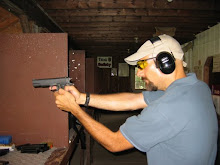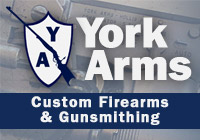Well, not really blues, but I'm still trying to decide which digital SLR to get. We're leaving for DC in three and a half weeks, and I'd really like to have a decent quality SLR camera to bring with us - we're going to be doing the full-on tourist bit, and I want to do the Clark Griswold thing and take pictures of it all.
One of the great things about the age we live in is that digital cameras are cheap and small. My seven year old daughter has a $30 Vivitar digital camera that is more advanced than the $900 Kodak we bought in 1999 - and it's about a third the size and weight, too. Digital SLRs have come way down in price as well - right now, an entry level camera's running about what we paid for a marginal standard digital camera in 2003.
I've got it narrowed down to the Nikon 3XXX series (3000 or 3100, depending on package deal) and one of the Canon Rebel series. I understand that Nikon vs. Canon is along the lines of Ford/Chevy or 1911/Glock, and it will most likely come down to which one has the better deal and or fits better in my hand.
So, it's going to be something like this:
One of the great things about the age we live in is that digital cameras are cheap and small. My seven year old daughter has a $30 Vivitar digital camera that is more advanced than the $900 Kodak we bought in 1999 - and it's about a third the size and weight, too. Digital SLRs have come way down in price as well - right now, an entry level camera's running about what we paid for a marginal standard digital camera in 2003.
I've got it narrowed down to the Nikon 3XXX series (3000 or 3100, depending on package deal) and one of the Canon Rebel series. I understand that Nikon vs. Canon is along the lines of Ford/Chevy or 1911/Glock, and it will most likely come down to which one has the better deal and or fits better in my hand.
So, it's going to be something like this:

or this:
 (Canon Rebel T3)
(Canon Rebel T3)The Nikon has the greater resolution; the Canon appears simpler to use. A lot will depend on which particular camera feels better; ease of operation as well as accessories will also fit into the decision. I've been talking to folks who own digital SLR cameras (FWIW, Canon outnumbers Nikon about 5 to 1 at this time), and everyone I've talked to has been very pleased with their particular model.
As always, thoughts, comments, and cautions are highly desired.
That is all.







25 comments:
The Canon is a phenomenal camera.
For what it's worth, when you're figuring out which one fits in your hand better, you should include which menus are easier for you to navigate and select the option you want. I know that's one of the big reasons I prefer Nikon, personally.
The only question I have is, are you sure you want a full sized camera? I got right to the edge of buying a full sized camera with interchangeable lenses and the after trying some of the medium sized cameras, decided I want one that I could carry in a jacket pocket and decided to buy a Canon SX130.
12x optical zoom, 12 megapixel sensor, runs on AA batteries (I use rechargeables), and isn't much bigger than a man's wallet.
It doesn't do everything the bigger SLR will do, but it's concealable, and to paraphrase a line from another activity, the pocket camera you have with you all the time is better than the big SLR back home in the safe.
The Canon SX130 IS Powershot is the camera I just recommended to another blogger - it is a great bargain for a capable camera.
I find the grip Rebels too small to hold in my hand. I would go with the next Canikon model up in their repective lines (D90/60D) for that reason, and more importantly for the second control dial in the back and better viewfinder (brighter, larger, more complete frame coverage).
Thom Hogan just posted his D3100 review. He's the go-to man for Nikon stuff. He doesn't write as much as some others, but you can take what he writes to the bank.
http://bythom.com/nikond3100review.htm
I like Sony's technology but just about any DSLR these days is very capable. But my main suggestion for you at this point is to buy it soon and get atleast a couple weeks experience before a big trip. It's not uncommon that the initial result of shooting with a DSLR with more buttons and optios it to take *worse* photos. The learning curve quickly reverses this....but you don't want the frustration and disappointment of that learning curve being on a big family trip!
Better decide soon. You're gonna need some "Range Time" with whichever you chose before you go.
You need to get familiar enough with the controls before you setup for all the requsit "Fireing Squad Happy Snaps" in front of the Whitehouse.
Also you need to decide on what format to shoot. JPEG or RAW. and how many megapixels. The camera will come set out of the box at some less than ideal resolution to maximize the number of fotos on the avaialble memory.
JPEG -- Smaller file size, more photos per MB.
RAW -- more "darkroom" control to adjust and fix errors. But you'll probaly also need to download from the camera every day to a Laptop or Ipod so you don't run out of memory.
..... and since all the digital cameras now have a screen on the back ... get in the habit of checking the photo you just took on the screen after each shot.
...and another vote for the Nikon.
I'm a Nikon guy, but that doesn't mean I don't think Canon isn't a good brand. Either one should work, but you need to figure out which one fits your hands the best.
Two, do NOT spend extra money on the megapixels. Heck, 4MP will print an 8x10 perfectly. The extra pixels take up space and are mostly used for cropping in anyway.
If you only listen to one thing, listen to this - The camera is a light tight box and has very little to do with the picture quality. Spend the money on good lenses instead. Faster lenses with a fixed aperture are what you want. Don't be surprised to see a good lens cost more than the camera ;)
The lens makes the camera. Trust me on this.
I like Nikons. I've found that the super small models - the D40x/D3000/D3100 size it a bit small for me. I'd imagine the Canon cameras are about the same.
If you are planning to change settings fairly often, consider one of the higher end models. They fit the camera in the smaller frame by making most of the settings menu driven, versus the handy buttons right on the back.
Consider what you'll be using this for when deciding between Canon and Nikon. You aren't buying a body, you are buying a system. Both companies offer a wide variety of lenses, but which has the ones you think you might possibly use (or rather, the better of that type?). Bodies eventually wear out, though they are getting better, and the tech on them gets outdated every year, with Nikon and Canon trading places. Glass you buy now will last forever, though. In short, buy the glass, not the body.
Aside from that, just decide which one fits in your hand better. Fondle them both.
Robb's got it right, though i'd like to add Canon and Nikon are pretty equivalent in capabilities. check out glass prices, since i guarantee you'll want to get more than the kit lens(es). also: do you know anyone who shoots one of those brands? if so, they might be willing to lend/share glass with you, which would make the choice a lot easier.
i bought my Nikon because a friend also shoots Nikon, so she lends me glass and tips me off to deals on accessories.
Picking a modern DSLR based on resolution is like picking a minivan based on top speed. Any modern DSLR and most point and shoots will have more resolution than you need.
I just bought a Pentax K-x, and I'm thrilled--but that doesn't mean a DSLR is for everyone. You might consider one of the higher end bridge cameras, they may do everything you are looking for in a smaller and easier package.
The main advantages of a DSLR are depth of field control, low-light shooting without flash, and somewhat faster handling. Disadvantage is size, cost and complexity. If you want to be artistic, get a DSLR, but if you just want clear documentation of a vacation, it might be more than you need.
Some excelleent points, thanks everyone.
As far as if I'm sure I want a full size camera, the answer is yes. We have a small, inexpensive digital camera already that's perfect for a day at the beach or such.
As for getting the camera now and learning on it before we leave for DC, that's why I'm posting this now! But thanks, that's an excellent point.
Les, thanks for the review. I've been leaning towards the Nikon (hence why it was placed first) because one of the advantages that it can use film camera lenses that might not be as expensive as new digital lenses (and yes, I realize that will require manual focus).
Robb,
Excellent point on the lenses. I wanted to get a good "general" lens (industry standard seems to be the 18-55mm) and then branch out from there. I'm figuring at least one decent telephoto lens and one macro lens ought to do it.
Sevesteen, doing "artsy" shots is exactly why I want a DSLR. I want to be able to take close-up shots that aren't out-of-focus; long distance shots that seem up close; and active shots that aren't one giant blur.
+1 w/ Rob and others, good glass is worth it. Either fixed with low f-number (nikkor 50mm f1.8 is cheap, small lens but performance is superb), or zoom lens w/ vibration control (VR for Nikon, OS for Canon).
My suggestion: Nikkor 18-200 VR, good travel lens, "does it all"; picture quality might not satisfy professionals such as mr. Volk, but for personal use/non-commercial publications is will suffice.
Used or refurbished camera and/or lens? I'd look for used camera frames w/shutter count under 10 000 and valid warranty. Folks buy their first DSLR, find out it's too big to carry around etc. and trade it in for something smaller. Voila - allmost brand new camera, but cheaper. Same for used lenses.
I think you're almost exactly where I was a month ago before I got my Pentax. Some of the bridge cameras are phenomenal--they can do the in focus close ups, superzoom lenses with optical image stabilization can bring distant subjects up close, and non-blurry active shots.
What a bridge can't do in most cases is take a picture where the main subject is the *only* part in focus.
I'm not trying to talk you out of a DSLR--just clarifying what I mean by artsy. The last couple posts on sevesteen.com have some examples of 'artsy'
Canon vs Nikon is a religious argument, so I won't go there. Get the one you like better.
As for lenses, I would very much recommend getting a superzoom (18-200 range). The Nikkor that suo recommends is a good lense. I have a Sigma 18-250 HSM that I'm very happy with. Canon, Tamron and others also have similar lenses. 18-200 is about the range that is used for basic everyday stuff. I started out with separate 18-55 and 55-200 zoom lenses, and missed a lot of opportunities because wrong lens was on, and swapping lenses takes more time than changing a magazine. A superzoom typically gives somewhat lower quality than regular zoom, but when it's the difference between slightly lower quality and not taking the photo at all, for me it's a pretty obvious choice.
Also, you'll probably want to get a decent portrait lens. Canon has a very decent prime 50mm, and reasonably fast - 1.8, for about $100. If you're willing to spend $250 more, you can get a faster one - 1.4. And if you can shell out about $1300 on top of that, it gets you a pro level 1.2.
The thing that's not so fun about SLRs is that if you think the bodies are expensive, wait till you start shopping for good lenses :(
I liked my Canon Rebel, and for as cheap as the 18-55 was that came with it, it took good pictures.
My mom has one of the Canon Rebels (an older model) and she loves it!
That said, like Robb said, the lens is everything. She put a better lens on it the moment she bought it.
For Nikon don't bother with the D3000, go D3100.
Besides that just get whatever feels better in your hands and is more intuitive to use. I happen to like the controls and build materials of Nikon, but it really comes down to personal preference.
*IF* you already own or have access to existing lenses, that should be a key consideration. I had some old Pentax lenses from college, and that led me to my (now outdated) *istDL.
I think almost all of the DSLR's on the market are amazingly good, and choosing between them is often splitting hairs.
I just went through this at Christmas. I think it is a toss up between the Nikon and Canon cameras. I've always like Canon cameras so I opted for a XSi. The menu system is nothing like their point and shoot cameras but it is pretty simple to learn.
I didn't go for the T1 or T3 because I don't think mega-pixels matter in this range.
One note...I got a 18-55mm lens and a 70-300mm lens thinking this would cover my needs. My problem is I find myself constantly switching between the 2 lenses. Just when I think the 18-55 is good enough, I want to reach out. Just when I think I need the tele lens, I need to shoot something up close or need a bigger aperature.
If I could do it again, I'd get a 18-200 mm lens for everyday work (would cover 95% of shots) and then a fixed macro and a fixed mega-tele lens.
If you are restricting yourself to the $600 price point, the Nikon will be a better deal. They are both entry level cameras, but the Nikon has a higher ISO sensitivity and a better movie mode. That being said, if you are willing to pay more for the camera body then the differences in Canon/Nikon even out.
Lenses will be your biggest expense whichever path you take. If you get serious then you'll run into the limitations of the kit lens pretty quickly.
I would recommend checking out www.dcresource.com - this guy has good camera reviews. I'm on my second Pentax DSLR. I chose Pentax for two reasons: The shake reduction is in the sensor and not the lens, meaning that my old lenses work with this feature, and the fact that I had a lot of old Pentax glass. From my experience, I don't think you would go wrong buying Canon or Nikon either.
We have both a Nikon D200 and a newer Nikon D90. I prefer the D90, as it came around at the time when Nikon drastically improved the user interface, which all their new SLRs now have.
I do not buy Canon products on grounds of principle. Canon's disdain and predatory treatment of their Texas employees who had Concealed Handgun Licenses was the impetus for Texas making CHL info completely private and inaccessible to the public in 2007. There was a discussion about this on THR back then at the following link:
http://www.thehighroad.us/showthread.php?t=269526
Seems that THR is unresponsive at the moment, but you should be able to see it when it comes back up. There was discussion about Canon's practices during the legislative discussion of HB991 during before its passage.
Agree with lenses being more important than the body. Training, too.
I had the Nikon 18-55mm as a starter lens. It was OK, but I like the 18-105mm better. More versatile range, better image quality.
At some point you'll understand why you want a fast (large aperture) lens or two. A prime (non-zooming) lens in the 35-50mm range is great for that.
PS. Nikonrumors.com thinks Nikon will announce the D5100 in April.
Post a Comment